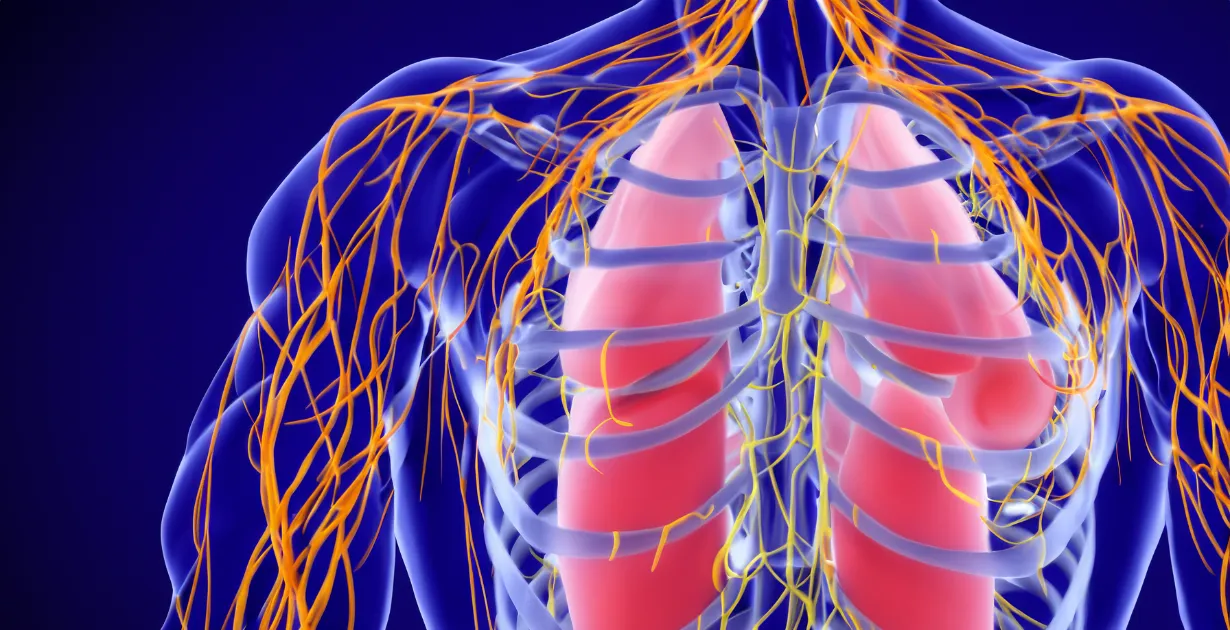Lymph is this clear bodily fluid that works as your personal transport and defense squad. It’s mostly water, proteins, fats, lymphocytes (those hardcore immune cells), and some metabolism leftovers. Think of it as your "second blood"—just without the red blood cells doing the heavy lifting.
The Lymphatic System – Your Body’s Secret Cleaning Crew
The lymphatic system is a network of vessels, lymph nodes, and organs that helps you dump toxins, fight infections, and keep your fluid balance on point. Picture it as your internal plumbing that collects the extra fluids from your tissues and filters out the junk.
Key Players in the Lymphatic System:
- Lymphatic Vessels – They’re like highways for lymph, transporting it all over your body.
- Lymph Nodes – Think of these as mini security checkpoints that filter out viruses, bacteria, and other sketchy characters.
- Spleen – This organ stores lymphocytes and cleans your blood like a boss.
- Thymus – It’s in charge of getting some of your immune cells all grown up.
- Tonsils – Your frontline defense against germs trying to crash the party via your mouth or nose.
Basically, lymph picks up the waste, the lymph nodes inspect it like bouncers at a club, and the whole system keeps you fresh and ready to take on infections. But if your lymphatic system starts slacking off, you might get swelling, a weak immune system, and that annoying “puffed up” vibe.
Lymphatic Stagnation: When Your Body Decides to Turn into an Aquarium
Every one of us has this inner hydraulic system called the lymphatic system. It’s usually quiet, low-key, and doesn’t ask for much attention… until it decides to go on strike. Suddenly, your legs turn into giant water balloons and your face resembles a full moon. Yup, that’s lymphatic stagnation for you—a mysterious phenomenon that makes you feel like a waterbed, even if you never planned on becoming a human paddle boat.
When Your Lymphatic System Says, "I’m Done!"
Normally, lymph flows as smoothly as a lazy river, taking toxins and extra fluids away. But sometimes it just stops cooperating. Why? Lack of movement, a crappy diet, or maybe even lymph just needs a spontaneous vacay. The result? Swelling, that heavy, weighed-down feeling, and sometimes, looking like you’re smuggling extra water in your ankles for a Sahara expedition.
How to Battle Lymphatic Stagnation – The Ultimate Survival Guide:
- Don’t Sit Still Forever: Your body isn’t a Michelangelo statue—get off your butt and move!
- Drink More Water: It sounds counterintuitive if you’re already juggling extra fluids, but trust the science—it works.
- Try Lymphatic Massages: Perfect excuse to lie around and convince yourself you’re “taking care of your health.”
- Rock Compression Stockings: For those days when you wanna feel like you’re wearing a trendy Superman suit… minus the cape, of course.
Embrace Your Lymph
Remember, your lymphatic system is your buddy—even if it sometimes acts like a moody diva. With a bit of exercise, a healthy diet, and some patience, you can totally kick that "pickled cabbage barrel" feeling to the curb.
And if your lymph still gives you grief? Maybe it’s time to consider a career as a water acrobat—at least you’d be making a splash!
Where Are the Lymph Nodes and How Do They Work?
Lymph nodes are these small, bean-shaped checkpoints spread all over your body. They work like filters, catching bacteria, viruses, and other nasties before they can wreak havoc deep inside. Imagine them as security stations in your immune system—each group of nodes is on high alert, ready to trigger a full-on immune response if needed.
Main Groups of Lymph Nodes:
- Cervical Nodes: Located along the sides of your neck and under your jaw. They tend to swell when you’ve got a sore throat or a cold.
- Axillary Nodes: Found under your arms, they guard your upper body—including your arms and chest.
- Inguinal Nodes: Hanging out in your groin area, they handle lymph drainage from your legs and lower abdomen.
- Submandibular and Submental Nodes: These chill under your jaw and chin, reacting to infections in your mouth and throat.
- Deep Abdominal and Chest Nodes: Not as easy to spot, but just as important. They filter lymph from your internal organs.
How Do Lymph Nodes Work?
1️⃣ Filtration: Lymph flows through these nodes where its "bodyguards" (white blood cells) check for any trouble.
2️⃣ Capturing Invaders: Bacteria, viruses, and toxins get nabbed and neutralized.
3️⃣ Producing Lymphocytes: The nodes crank out specialized immune cells to help fight off infections.
4️⃣ Triggering the Alarm: When a threat is detected, the immune system kicks into high gear, causing the nodes to swell up as they fight back.
💡 Are Swollen Lymph Nodes Always a Bad Sign?
Not at all! Swollen nodes are usually just a normal reaction to an infection. But if they stick around for too long, feel painful, or become hard, it might be time to hit up your doctor.

Sources:
https://www.mayoclinic.org/diseases-conditions/lymphedema/symptoms-causes/syc-20374682
https://en.wikipedia.org/wiki/Lymphatic_system